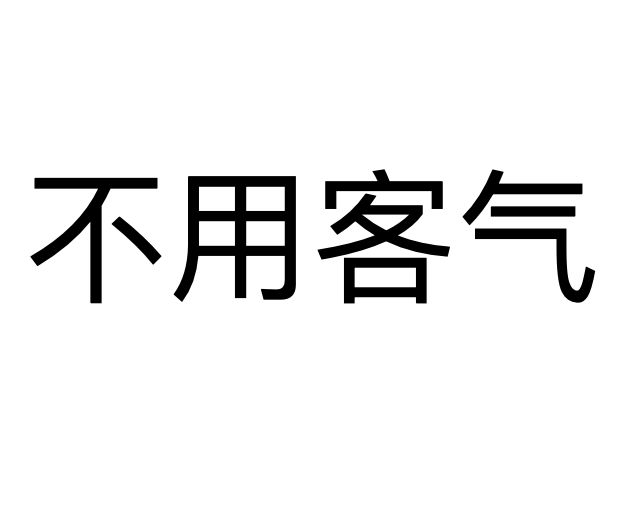Don't be so polite!
As children it was hammered into our heads to be super polite. Anytime you wanted anything you had to add a ‘please’ onto the end. You could be asking for some outlandish thing, like telling mom to give you fifty dollars that you could go waste on candy bars, but if it didn’t have a please on the end it was dead in the water.
Please and thank you. Everything coming into your life had to be buttered in please and salted in thank you. Being polite was an important virtue growing up.
Which is why I was so deeply confused upon moving to China where everyone was telling me bu yong keqi! (don’t be so polite!)
The phrase ‘bu yong keqi’ (不用客气) literally translates as ‘don’t use politeness’. It’s a response to someone saying ‘thank you’, in the same way we’d say ‘you’re welcome’ or ‘no problem’ in English. There are many variations on this phrase, my favorite of which was ‘Ni zhenme keqi ganma!?’ (what are you being so polite for?) implying a playful suspiciousness.
It was so confusing to constantly be told bu yong keqi, as good manners had been drilled into me, and also because most of the people I was interacting with were so incredibly polite. I remember my first year in China being showered with gifts and kind words from people I’d barely met. Somewhere floating around on the internet are episodes of The Jingzhou Show, my old YouTube TV show, where one of the early episodes was simply unwrapping all of the gifts my students had given me.
While English is a linguistic Frankenstein that went viral, Mandarin Chinese as a language has been purified over thousands of years. Common phrases reflect their cultural vantage point and traditional way of thinking.
Therefore, given the long history and beauty of the language, the phrase bu yong keqi warrants further reflection. When they say “don’t be so polite” rather than “you’re welcome”, is there some deeper and universal human dynamic that the language is exposing?
One could observe that our relationships with others exist as concentric circles, with degrees of familiarity and trust emanating from the center. It could also be noted that the further one moves from their inner circle, the more of a social façade is put up for others to see. We are polite and well-mannered with the clerk at the check-out line, but rude and overly casual with members of our inner circle, be they family or friends.
In this regard, bu yong keqi expresses a universal human dynamic, we are polite to strangers and rude to those we love. And unfortunately for them, I am rudest to the people I am emotionally closest with – my wife, closely followed by my son.
Strangers show us their polished outer veneer, whereas loved ones expose their warts and eccentricities. I could send you to have tea with the Taliban and you’d come back telling me how generous and respectful they were to you, nothing at all like your boorish, bad-mannered oaf of a husband.
The phrase bu yong keqi is an invitation to move socially closer, to step into the next circle. To let your hair down a bit and not be so formal around each other. This person is telling you, “Don’t bother using words like please and thank you with me! Come on, don’t be so polite!”
But besides all that, the phrase bu yong keqi is also empty words. That’s why the fabric of the time space continuum will be torn asunder, your mind will explode, and the universe will collapse in on itself in a never-ending infinity feedback loop when you realize that more often than not, a person’s offer to not be so polite and is in fact them just being polite.
It is fascinating to note that the final two characters in this phrase ke and qi are used in other words. Ke (客) is used in the words ke ren (客人) (guest in the home) and lv ke (旅客) (traveler). Qi (气) is air, essence, or tone of voice. Another way to view this phrase is don’t use the tone of a guest, but the tone of a close member of the inner circle.

